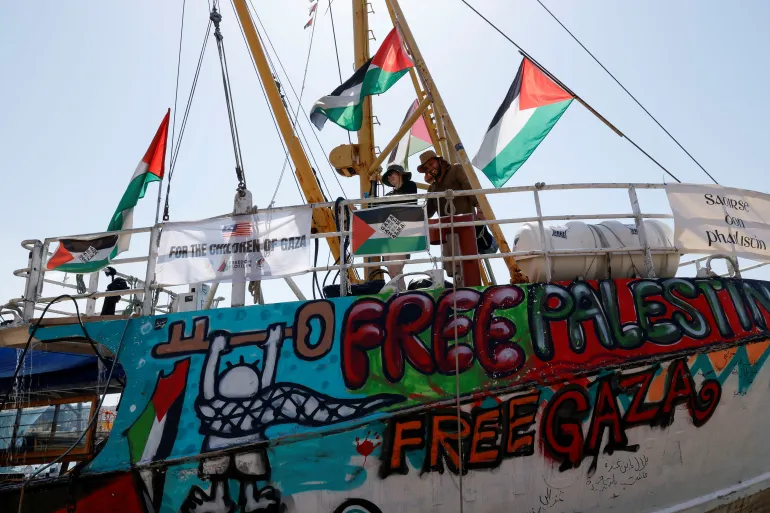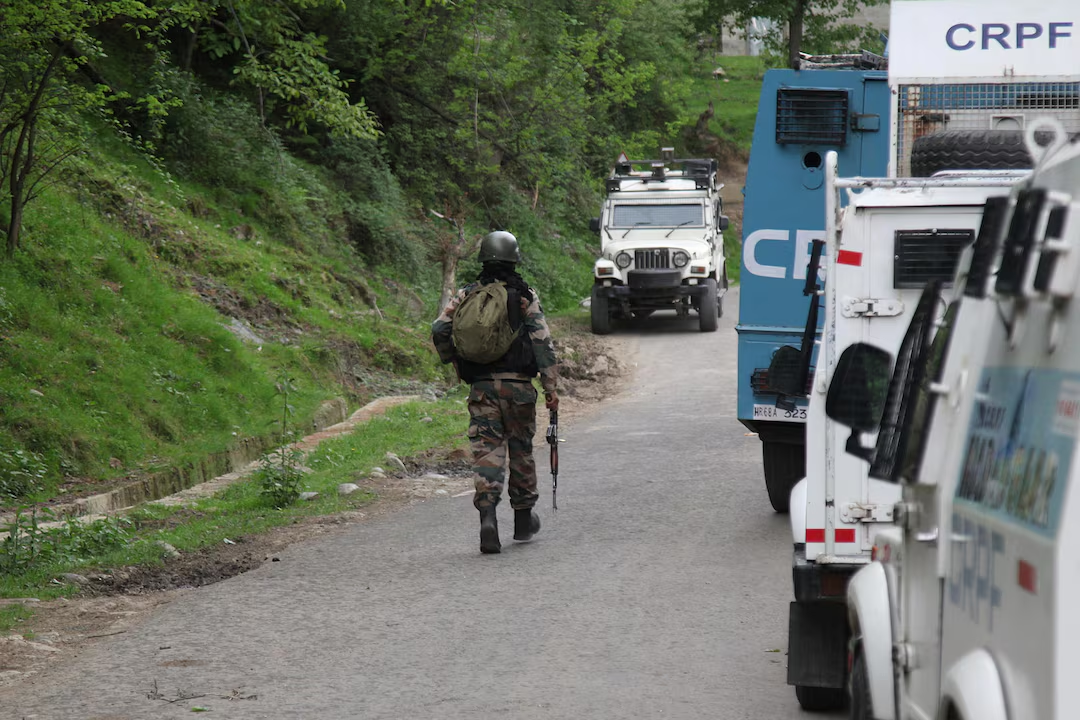Swedish climate activist Greta Thunberg has announced her decision to join an international humanitarian aid flotilla aiming to break Israel’s longstanding naval blockade of the Gaza Strip. The move marks her latest expansion into global activism beyond climate issues.
Thunberg, 22, will participate as part of a civilian-led mission involving a coalition of European and Middle Eastern activists. Organizers of the initiative say they plan to deliver food, medical supplies, and other critical humanitarian aid to Gaza, which has been under Israeli blockade since 2007.
In a statement posted on social media, Thunberg said, “We cannot stand by in silence while people in Gaza are being starved, bombed, and denied basic human rights. I am joining this mission because it’s time to act in solidarity with the Palestinian people.”
The flotilla, which consists of several vessels, is expected to set sail from a Mediterranean port in early June. Organizers did not specify the exact departure location or route, citing security concerns. Previous attempts by activists to break the blockade have resulted in confrontations with Israeli naval forces, including the deadly 2010 raid on the Mavi Marmara ship.
Thunberg’s participation in the mission has drawn significant international attention and mixed reactions. While pro-Palestinian activists have welcomed her involvement as a powerful symbol of global solidarity, Israeli officials have criticized the move as politically motivated and potentially provocative.
An Israeli government spokesperson stated, “We will not allow any unauthorized vessels to enter the maritime area off Gaza. This flotilla, like those before it, is a political stunt that does not contribute to the humanitarian needs of Gaza residents.”
The humanitarian situation in Gaza has worsened in recent months amid continued Israeli airstrikes and a severe blockade restricting the flow of goods and aid. The United Nations and various international organizations have repeatedly warned of a looming humanitarian disaster, with access to food, water, and medical supplies drastically limited.
Human rights groups backing the flotilla argue that direct civilian-led missions are necessary to bypass political gridlock and raise awareness. “The world must not turn a blind eye to Gaza’s suffering. This mission is about hope, dignity, and urgent relief,” said Sofia Lindberg, a spokesperson for Ship to Gaza Sweden, one of the organizing groups.
Thunberg’s activism has previously focused primarily on climate change, but in recent years she has broadened her advocacy to include social justice and human rights causes. Her public support for the Palestinian cause has grown increasingly vocal, especially following Israel’s military operations in Gaza earlier in 2025.
The Israeli navy has intercepted several Gaza-bound ships in the past, often redirecting them to the Israeli port of Ashdod, where cargo is inspected and either seized or transferred via authorized aid channels. Officials have not confirmed whether the current flotilla will be allowed to proceed or if it will face similar actions.
The European Union has urged both sides to avoid escalation. “Humanitarian efforts must be respected, but they must also comply with international regulations and security protocols,” said an EU foreign affairs official.
Despite the risks, Thunberg and other participants remain committed to the mission. “We are prepared for all outcomes, but our focus is on peacefully delivering aid and drawing attention to a crisis that has persisted for far too long,” Lindberg said.
As preparations continue, the flotilla is drawing support from various NGOs, student groups, and activists across Europe and the Middle East. Whether the aid mission will reach its destination or face resistance at sea remains uncertain. Nonetheless, organizers say the symbolic power of the mission is already making an impact.
Source; Al Jazeera



